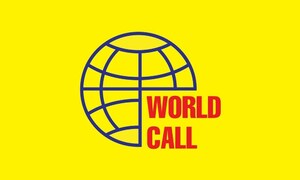EDITORIAL: There’s no doubt that warehousing and cold storage facilities have emerged as pillars of the infrastructure that supports global trade in the modern era; playing an indispensable role in the seamless movement of goods across borders.
These facilities ensure not only the preservation of perishable goods but also bolster supply chain resilience. Yet in Pakistan, the treatment of this critical sector by the regulatory authorities highlights deep flaws in decision-making, as evidenced by recent developments involving the National Electric Power Regulatory Authority (Nepra).
This issue was all over the media when Nepra decided to classify cold storage facilities under the commercial tariff category rather than retaining their industrial status. The move drew sharp criticism from industry stakeholders, who termed it a regressive step.
Cold chain operators, including those involved in warehousing, argued that the decision was not only detrimental to their operations but also indicative of a lack of understanding of the sector’s contribution to the economy. They emphasised that cold storage was not merely a service but an integral component of industrial activity, ensuring the quality and safety of goods, particularly in export-oriented sectors such as agriculture and pharmaceuticals.
The Nepra decision, it seems, was made without adequately considering the implications for trade and industry. By placing cold storage facilities in the commercial tariff category, the cost burden on operators was significantly increased, jeopardising their viability.
This, in turn, threatened to disrupt supply chains and undermine the competitiveness of Pakistani exports in international markets. It is perplexing that a sector so vital to trade and economic growth could be so summarily miscategorised.
Fortunately, Nepra subsequently reversed its decision and reinstated the industrial status of cold storage facilities. While this reversal was welcomed by stakeholders, it also exposed the inherent flaws in the regulatory framework.
The episode raises several questions: Why was such a critical decision taken in the first place without thorough consultation with the industry? What mechanisms exist to ensure that policies align with broader economic priorities? And most importantly, what safeguards are in place to prevent such disruptive policy reversals in the future?
To properly understand the situation, one must consider the broader implications of cold storage facilities on cross-border trade. Pakistan’s geographic location and its ambitions to serve as a regional trade hub under initiatives like the China-Pakistan Economic Corridor (CPEC) necessitate a robust cold chain infrastructure.
With rising global demand for fresh produce, seafood, and other perishable items, the ability to maintain product quality during transit is a competitive advantage that cannot be compromised.
Yet the recent sequence of events suggests a lack of coordination between regulatory bodies and economic planners. This disjointed approach not only undermines investor confidence but also signals an alarming disregard for the operational realities of critical sectors. The cold chain industry’s call for being treated as an industrial activity is not merely a demand for financial relief; it is an assertion of its essential role in the national economy.
This episode also brings into focus the broader challenges faced by the cold chain industry in Pakistan. High energy costs, inadequate infrastructure, and inconsistent policies have long plagued the sector. The Nepra decision — even if reversed — adds to this uncertainty. Operators are left grappling with policy swings that make long-term planning nearly impossible. For an industry that relies heavily on capital-intensive investments, such unpredictability is a significant deterrent.
The government must recognise that warehousing and cold storage facilities are not peripheral activities; they are enablers of trade and economic growth. A stable and supportive policy environment is essential to ensuring that these facilities can function efficiently. This includes not only maintaining their industrial status but also addressing broader challenges such as energy availability, infrastructure development, and access to finance.
The Nepra episode serves as a cautionary tale of how flawed decision-making can disrupt critical sectors and, by extension, the economy. It underscores the need for a more consultative and coordinated approach to policymaking, where the voices of stakeholders are not just heard but also heeded. As Pakistan seeks to expand its footprint in global trade, it cannot afford to treat essential infrastructure sectors as afterthoughts.
Copyright Business Recorder, 2025























Comments
Comments are closed.